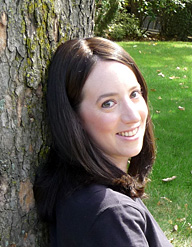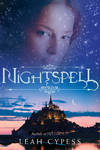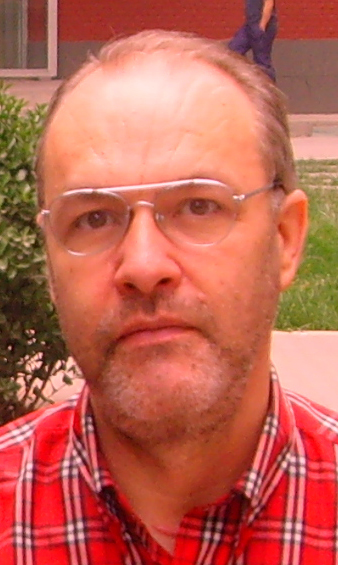interview by Carl Slaughter
 Leah Cypess is a fantasy author with 2 novels under her belt (“Mistwood” and “Nightspell”, 2 recent stories in Asimov’s (“Twelvers” and “Nanny’s Day”), another novel due in early 2014 (“Deathsworn”), and a fist full of rave reviews. A free anthology of her short stories is entitled “Changelings and Other Stories” and is available from B&N, Amazon, and Smashwords. Her website is www.LeahCypess.com.
Leah Cypess is a fantasy author with 2 novels under her belt (“Mistwood” and “Nightspell”, 2 recent stories in Asimov’s (“Twelvers” and “Nanny’s Day”), another novel due in early 2014 (“Deathsworn”), and a fist full of rave reviews. A free anthology of her short stories is entitled “Changelings and Other Stories” and is available from B&N, Amazon, and Smashwords. Her website is www.LeahCypess.com.
“I wrote my first story in first grade. The narrator was an ice-cream cone in the process of being eaten. In fourth grade, I wrote my first book, about a girl who gets shipwrecked on a desert island with her faithful and heroic dog (a rip-off of both The Black Stallion and all the Lassie movies, very impressive). After selling my first story (Temple of Stone) while in high school, I gave in to my mother’s importuning to be practical and majored in biology at Brooklyn College. I then went to Columbia Law School and practiced law for almost two years at Debevoise & Plimpton LLP, a large law firm in New York City. I kept writing and submitting in my spare time, and finally, a mere 15 years after my first short story acceptance, I sold my first novel to Greenwillow Books (HarperCollins). I live in Brookline, Massachusetts (right outside of Boston) with my husband Aaron, a researcher and doctor at the Joslin Diabetes Center, and our three children.”
Carl Slaughter: You have 2 stories in Asimov’s, science fiction’s leading magazine. How does an author who specializes in fantasy accomplish such a feat?
Leah Cypess:Â By writing science fiction stories! For years, I submitted borderline fantasy stories to Asimov’s and got form rejections. But as soon as I started submitting science fiction stories, I got positive responses and then, rather quickly, my first acceptance. Even though I write mostly fantasy, I read both fantasy and science fiction, so writing science fiction stories is not difficult for me (although since it often requires research, it does take longer).
CS: You gave up a promising career in law to become a full time fiction writer. How has that worked out for you so far? Ever tempted to second guess yourself?
LC:Â It has worked out great so far. And I’ve never second guessed myself, because even though law pays very well, it is a very all-consuming lifestyle. For people who enjoy what they’re doing, that’s great. I didn’t enjoy the practice of law enough to do it all the time, and because of that, the lifestyle made me very unhappy.
CS: You’ve had 3 children while forging career as a highly successful author. Raising a child, especially a young child, is the ultimate challenge, and you’re doing triple duty. So how have you accomplished THAT task?
LC:Â That one I’m still figuring out! A part of the answer is that my kids are naturally, and are encouraged to be, rather independent. Another part of the answer is that I definitely do not get enough sleep.
CS: Your newest novel, “Deathsworn,” was originally scheduled for fall 2013, then pushed back to winter 2014. This is summer 2012. I assume you wrote “Deathsworn” in spring 2012. Why does it take so long to get a book into print?
LC:Â The book wasn’t actually pushed back; fall 2013 was my agent’s estimate of when it would be published, but when the publisher put it into the schedule, it went in winter 2014. It takes at least a year to get a book into print because of all the work that has to go into the manuscript first — multiple rounds of revision, copyediting, proofreading, etc. And once that’s done, the publisher needs time to get the advance copies into the hands of librarians, bookstore owners, reviewers, etc. Plus, of course, publishers are working on many books simultaneously, so no single book can get rushed through all those steps at maximum possible speeds.
CS: Is the plot to “Nightspell” related to “Mistwood”? Is “Deathsworn” related to “Nightspell” or “Mistwood”?
 LC:Â All 3 of those books are stand-alones. Nightspell takes place a few years after Mistwood, but in a different part of the world and with a different main character. There is one crossover character, but aside from that there is no connection between the books. Deathsworn is set in the same world but hundreds of years in the future, when things have changed a lot; I’m not even sure if my publisher will call it a companion novel or a completely new duology.
LC:Â All 3 of those books are stand-alones. Nightspell takes place a few years after Mistwood, but in a different part of the world and with a different main character. There is one crossover character, but aside from that there is no connection between the books. Deathsworn is set in the same world but hundreds of years in the future, when things have changed a lot; I’m not even sure if my publisher will call it a companion novel or a completely new duology.
CS:Â Will “Deathsworn” be one story or will one of the novels be a prequel/sequel?
LC:Â Deathsworn is the first in a duology. It has a complete story arc of its own, with a beginning, end, etc.; no cliffhangers, I promise! But the sequel will pick up where the first book left off.
CS: For several years, you’ve been a member of the Critters Writers Workshop. What kind of feedback do you get from other members and to what extent does that help you? Do you submit all your stories to Critters? Do you make major revisions based on workshop critiques? Do you have other first readers besides on Critters? Have you tried other workshops?
 LC:Â I get all sorts of feedback from Critters, and I find it all very helpful. One of the things I like about Critters is that you get multiple feedback from different people who are not bouncing off each other, so it’s very helpful in spotting trends. (i.e. If one person is confused by a sequence in my story, but everyone else seems to get it, I’ll react very differently than if 7 out of the 10 critiquers are confused by it.) I submit all my stories to either Critters or my other critique group, Codex, before sending them out. If the critiques seem to call for it, I do make major revisions, often multiple rounds of revisions.
LC:Â I get all sorts of feedback from Critters, and I find it all very helpful. One of the things I like about Critters is that you get multiple feedback from different people who are not bouncing off each other, so it’s very helpful in spotting trends. (i.e. If one person is confused by a sequence in my story, but everyone else seems to get it, I’ll react very differently than if 7 out of the 10 critiquers are confused by it.) I submit all my stories to either Critters or my other critique group, Codex, before sending them out. If the critiques seem to call for it, I do make major revisions, often multiple rounds of revisions.
CS:Â Why do so many of your stories feature ghosts?
LC: I hadn’t realized they did, and had to stop and think about it myself! Ghosts are one of those enduring tropes that you can play with in so many ways, and of course they tie into the ultimate mystery, which is what happens to someone after they die. Fantasy is all about the unknown, and the idea that there’s more to life than what you can plainly see, so I guess my love of fantasy segues naturally into a love of ghost stories.
CS:Â Why a medieval type setting so often?
LC:Â Short answer: Tolkien.
Longer answer: I love fantasy books that take on new, non-medieval non-European settings, but at the same time, I think there is a reason why that setting is so popular. The limitations on technology in medieval times lends itself naturally to being a fantasy setting. In addition, the fact that it IS the default fantasy setting means that readers have an understanding of it and know what to expect, which means you get to spend less time on the worldbuilding and more time on telling your story.
CS:Â Why YA?
LC:Â When I was writing Mistwood and Nightspell, I actually didn’t realize that I was writing YA. All the high fantasy I’d read until then was published as adult (even though so many of them featured teenage characters, coming of age stories, etc.), and I just assumed high fantasy had to be adult. Problem was, I told the story in 70,000 words, which I was told repeatedly was too short. I didn’t want to pad the story with another 30K words, so I didn’t know what to do. Luckily, at about that time I read Dreamhunter by Elizabeth Knox, which made me realize just how much the YA genre had expanded since I’d grown up reading L.J. Smith. When I began submitting Mistwood to YA publishers, I got immediate positive responses, which made me realize that at heart it really was a YA story after all.
CS: Your science fiction stories don’t follow a distinct pattern. But almost all your fantasy stories involve the main character trying to solve a mystery about themselves and the people around them. The plot resembles a detective story, with pieces of the puzzle uncovered scene by scene and chapter by chapter, with the final revelation reserved for the very end. What’s the explanation for this pattern?
LC: Probably that I love detective stories, and that’s the pattern I naturally fall into for most stories. My science fiction stories tend to follow a different track from my fantasy stories — rather than starting out with a character and a situation, as I do with fantasy, I usually start with an idea. My main job is figuring out how to build a story around that idea, and often it’s enough work weaving the idea into the story without adding other secrets and mysteries as well. (Often! Not always.)
CS: So many fantasy writers rely on traditional magical beings. Dragons, unicorns, mermaids, vampires, werewolves, zombies, angels/devil. In your case, witches, ghosts, and shapeshifters. Why not original characters?
LC:Â I agree — why not original characters? — and I don’t hesitate to write readers who do use original characters. Myself, I find it much more fun to play with tropes. I also think that the tropes cover a lot of ground, and some writers seem to bend themselves over backward making up names and descriptions for some sort of original creature when, actually, it’s just a dragon (or whatever) with some changes. When writing the fantastical, I think any tropes or standards you can assume the reader shares with you are things to be taken advantage of rather than scorned.
 Carl Slaughter is a man of the world. For the last decade, he has traveled the globe as an ESL teacher in 17 countries on 3 continents, collecting souvenir paintings from China, Korea, Thailand, Vietnam, and Egypt, as well as dresses from Egypt, and masks from Kenya, along the way. He spends a ridiculous amount of time and an alarming amount of money in bookstores. He has a large ESL book review website, an exhaustive FAQ about teaching English in China, and a collection of 75 English language newspapers from 15 countries. His training is in journalism, and he has an essay on culture printed in the Korea Times and Beijing Review. He has two science fiction novels in the works and is deep into research for an environmental short story project. Carl currently teaches in China where electricity is an inconsistent commodity.
Carl Slaughter is a man of the world. For the last decade, he has traveled the globe as an ESL teacher in 17 countries on 3 continents, collecting souvenir paintings from China, Korea, Thailand, Vietnam, and Egypt, as well as dresses from Egypt, and masks from Kenya, along the way. He spends a ridiculous amount of time and an alarming amount of money in bookstores. He has a large ESL book review website, an exhaustive FAQ about teaching English in China, and a collection of 75 English language newspapers from 15 countries. His training is in journalism, and he has an essay on culture printed in the Korea Times and Beijing Review. He has two science fiction novels in the works and is deep into research for an environmental short story project. Carl currently teaches in China where electricity is an inconsistent commodity.

One thought on “Interview: Leah Cypess”